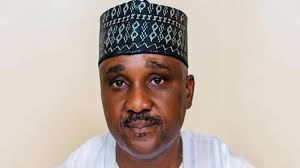
The recent defection of Olumide Rhodes-Vivour to the African Democratic Congress (ADC) has sparked sharp criticism from the ruling All Progressives Congress (APC), which branded him a “political scavenger.” However, such accusations ignore an essential truth about Nigeria’s political landscape — defections are not only common but are often strategic moves made by politicians to align themselves with parties that better reflect their ideals, ambitions, and chances of effecting change.
Defections, or party switching, have been a feature of Nigerian politics for decades. The multiparty system, combined with shifting alliances and political realignments, means that politicians frequently reassess their affiliations. In many cases, switching parties is not a sign of confusion or lack of direction but rather a calculated decision based on evolving political realities.
In fact, many of today’s most successful APC politicians have, at various points in their careers, crossed party lines before settling into the APC fold. Some notable examples include:
Rotimi Amaechi, who famously defected from PDP to APC in 2013, a move that played a crucial role in reshaping Nigeria’s political landscape and paved the way for the APC’s 2015 victory.
Godswill Akpabio, former PDP governor, who defected to APC in 2020 and continues to hold significant influence.
Kashim Shettima, who transitioned from the All Nigeria Peoples Party (ANPP) to APC and now serves as a key figure in the ruling party.
Bola Ahmed Tinubu and Yemi Osinbajo, key APC leaders, both migrated from parties like the Alliance for Democracy (AD) and Action Congress of Nigeria (ACN), showing the fluidity in Nigeria’s party system.
These examples show that defection is often a calculated and sometimes necessary political strategy, rather than a sign of lacking direction. Rhodes-Vivour’s move to PDP aligns with this reality — a political realignment motivated by his vision and the need to find a platform where he can best serve his constituents and ideals.
Critics from APC may attempt to frame Rhodes-Vivour’s defection as aimless, but in Nigeria’s evolving democracy, politicians frequently reassess their affiliations to align with parties that reflect their principles and offer the best opportunity to effect change.




